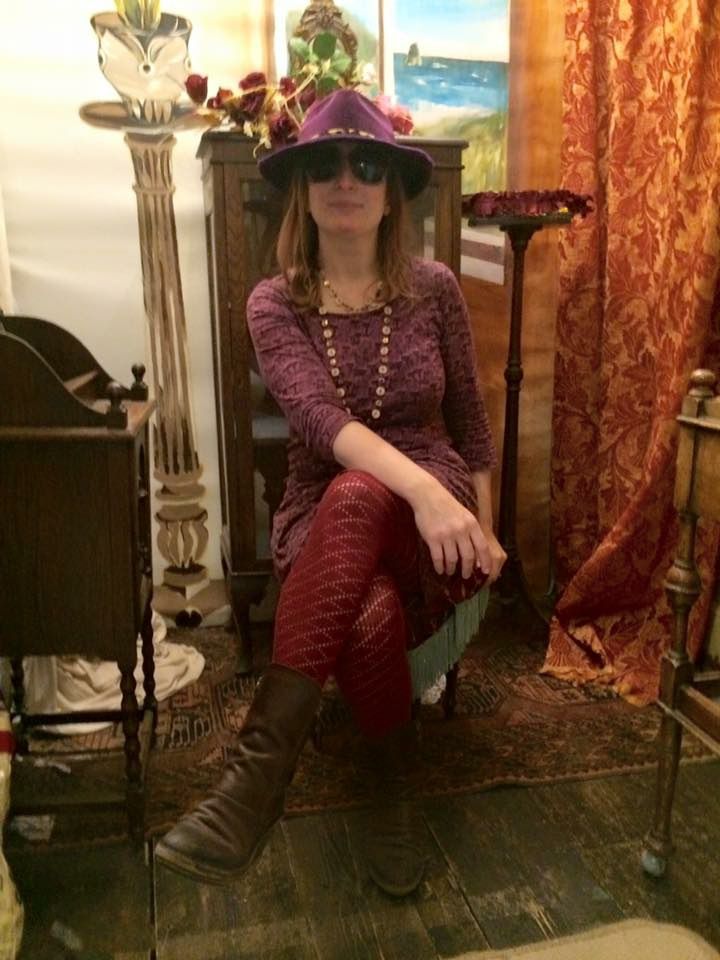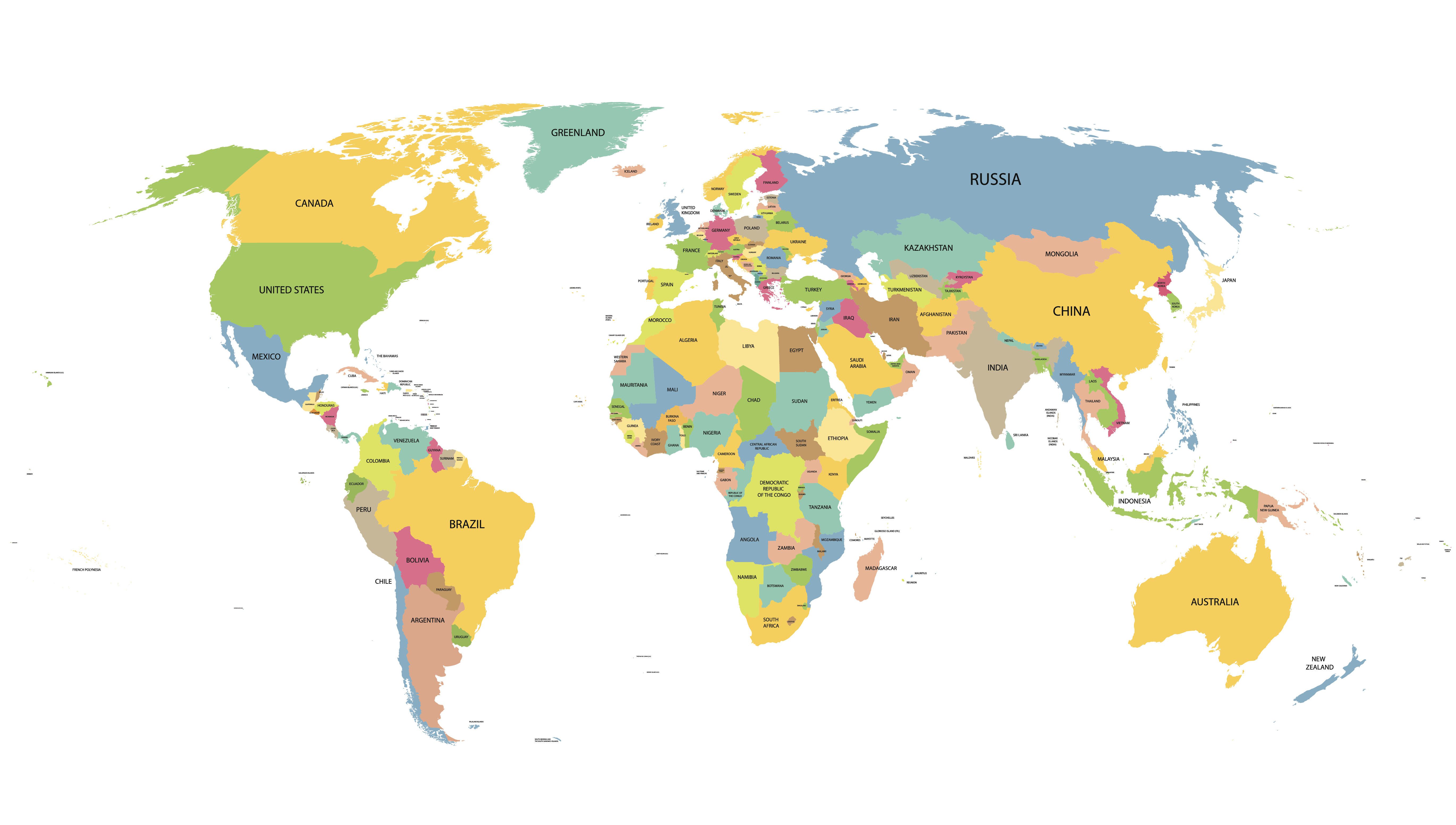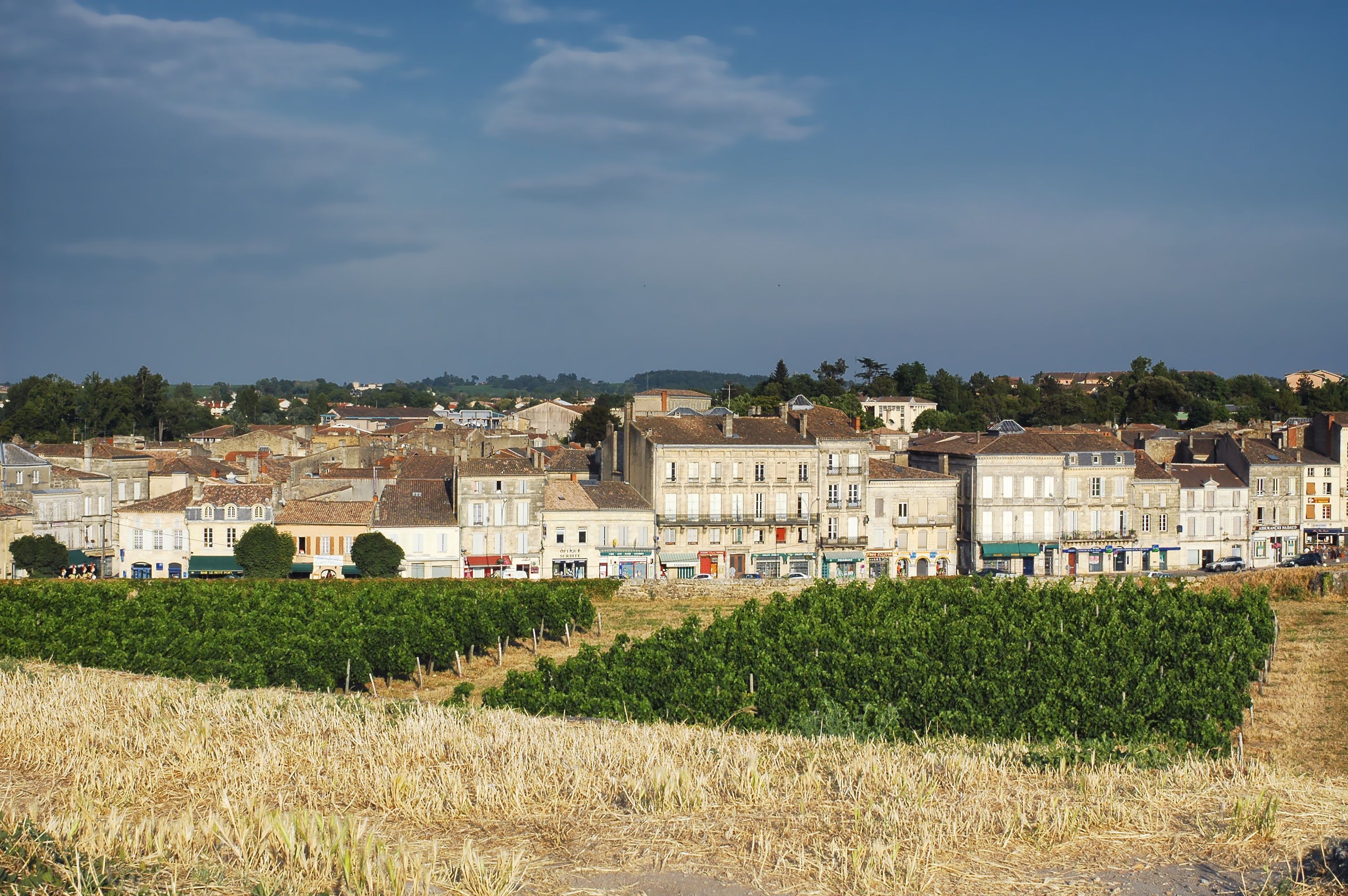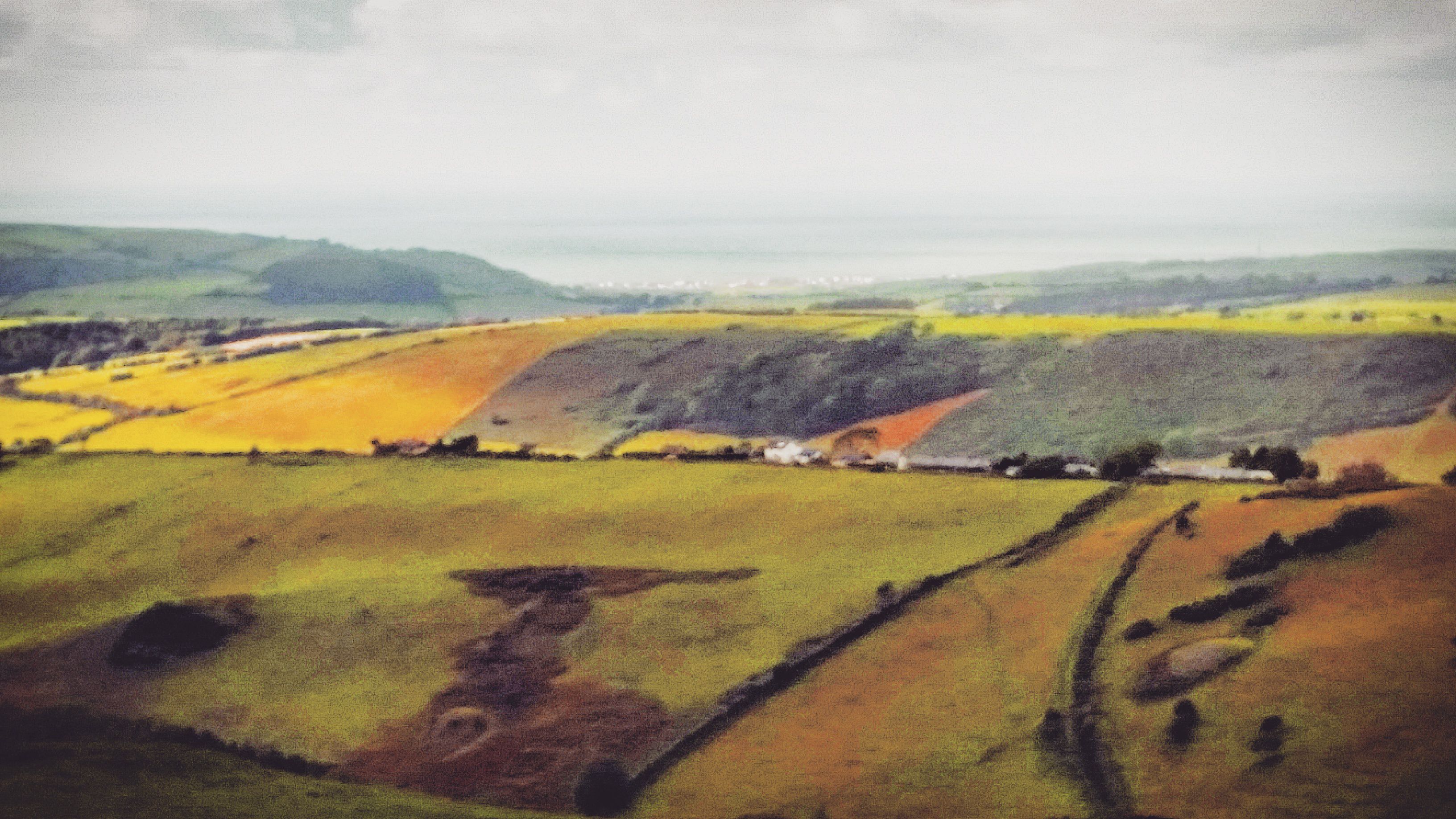A few of our favourite things…
Today is a big day here in the UK, as we’re voting in a referendum to decide our future in the European Union. A lot’s been said on both sides of the debate, so we won’t repeat any of the arguments for or against Brexit.
Instead, lets focus on the rich and fascinating cultures of both the UK and Europe. And who better to ask about their favourite things about them than our lovely staff?
Our colleagues from overseas have come up with some interesting things they love about the UK:
Nikolay (Bulgaria) – I ♥ British humour and specifically panel shows! Can’t get enough of “Mock the Week”, “QI”, “Would I Lie to You?”, “Have I Got News for You” etc.
Pablo (Spain) – People’s politeness and patience. In crowded places like in the centre, underground or the streets full of cars, is where you can notice it the most. The only way you can survive from bursting into a full crisis is with both qualities. I really really love that.
Sandra (Poland) – For me it is the Sunday roast, and fish and chips. Living with a lovely bunch of friends who love to cook means that I get to discover some great British dishes, and also that I love to have gravy with almost every meal!
Aditya (India) – I enjoy the British weather, in particular that I love the rain and cloudy weather! Originating from Delhi and having also lived in Dubai, I am rather fed up of the heat/sun.
Ioana (Romania) – Before I came to Britain I thought the idea of tea and milk is disgusting. Now I’ll have a cuppa if I’m sad, happy, with friends, by myself, in the morning or in the evening, there is just something incredibly comforting in a hot cup of tea. Especially on rainy days.
And here are some thoughts from our British colleagues…
Brett – I think the obvious one here is pizza!
Phil – European beaches are the best 🙂
Simon – I visited the Sagrada Familia on my recent trip to Barcelona, and it is an absolutely incredible building, with exceptional architecture.
Safia – I love Italian hot chocolate, you can eat it with a spoon!
Liz – The pain au chocolat… it’s a miraculous culinary invention that brightens up the dullest morning…!
Over to you! Brits – what do you love about Europe? And non-Brits, what’s your favourite thing about the UK? 🙂
Beginner’s guide to Romanian
The Junior Language Challenge is a national competition for children aged 10 and under across the UK. One of the goals of the competition is to give young learners the chance to discover exciting new languages, and this year we’ve chosen Romanian as the first language.
But how much do you know about this European language? Here’s Ioana’s introduction to her mother tongue…
Some other fun facts about Romanian
- The Romanian language is 1,700 years old and is the only Romance language spoken in Eastern Europe. That’s why you’ll be surprised how many similarities it has with French, Spanish, Italian and Portuguese. However, it also retains a number of features of old Latin and also contains many words taken from the surrounding Slavic languages, as well as from German, Greek and Turkish.
- The name “Romania” comes from the Latin word “Romanus” which means “citizen of the Roman Empire.”
- Something that might come in handy is that Romanian is a phonetic language, so words are pronounced as they are spelled. Yay!
- A foreigner trying to learn or speak Romanian can expect positive reactions from native speakers. Most Romanian will certainly appreciate the fact that you are making an effort to speak their language.
- Romanians tend to be very good at foreign languages, they start learning as early as 6 years old in school either English, French or German and they add a second language at the age of 11. The majority of young people speak very good English and some of them even another one or 2 languages.
- Romanians love meeting new people and making friends; they are also renowned for their hospitality, so if you speak Romanian you have a pretty good chance of having a blast if you’re visiting this country.
- And speaking of travelling, Romania has amazing landscapes. In fact, Romania’s Carpathian Mountains are home to the largest undisturbed forests in Europe.
- Don’t deny yourself the ease of ordering delicious Romanian food that comes in generous portions, and you’re guaranteed to remember a trip to Romania as one of the best you’ve ever had.
La revedere și mult succes (goodbye and good luck)
If you’re a parent or teacher of children aged 10 and under in the UK, visit juniorlanguagechallenge.com to find out more about our annual competition, which is now open! Entry costs just £5, which is all donated to our fantastic charity, onebillion.
Not your average Monday: what’s so special about 29th February?
Happy Leap Day! The 29th of February comes around every four years, but how much do you know about this extra day?
What is Leap Day?
Originally the Sumerians divided the year into 12 months and allocated 30 days for each month. This was adapted by the Egyptians, who realised that this didn’t fit in with the amount of time taken for the Earth to orbit the sun. The Egyptians decided to add five days in at the end of each year to give us the 365 days we have now; however, these five days were just for partying and celebrations – sounds good, right?! The leap year then came about from the Gregorian calendar, with the idea that one day would be added onto February every four years.
Leap years around the world
No one seems to know why it is called a ‘leap’ year, but there are other names for it around the world. In German a leap year is called ‘Schaltjhar’, in Russian it is ‘année bissextile’ and in French it is similar with ‘anno bisestile’. Interestingly in Italian it is called ‘l’ann d’la baleina’ which translates to ‘the whale’s year’, after a belief that whales only give birth during leap years. In many countries a leap year is believed to be bad luck; Russia and the Ukraine believe that getting married or buying a house during a leap year is unlucky. In Taiwan it is considered really unlucky; the Taiwanese go so far as to say that parents are more likely to die during a leap year.
What’s all this about women proposing?
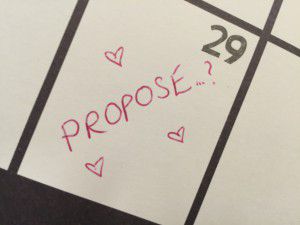 Perhaps the most well-known leap year tradition is the idea that women can propose to men in this year. This is believed to be introduced by an Irish nun who thought that women had to wait too long for suitors to propose and convinced St Patrick to give women permission to ask a man to marry them once every four years. It was thought that if a woman did want to propose she had to wear breaches or scarlet petticoats in order to do so.
Perhaps the most well-known leap year tradition is the idea that women can propose to men in this year. This is believed to be introduced by an Irish nun who thought that women had to wait too long for suitors to propose and convinced St Patrick to give women permission to ask a man to marry them once every four years. It was thought that if a woman did want to propose she had to wear breaches or scarlet petticoats in order to do so.
In certain European countries it was thought that if a man refused the proposal they should pay a penalty. In Finland they had to buy the lady fabric so she could make her own skirt. In Denmark, the suitor had to buy her twelve pairs of gloves so the lady could hide her embarrassment at not having an engagement ring.
What if you’re born on 29th February?
People born on the 29th have to decide which day to celebrate their birthday for the other three years. However the chances of being born on the 29th of February are 1 in 1,461. For those that are born on this day, the city of Anthony (next to Texas) celebrates the leap year with a four-day festival; this is done to celebrate the leap year babies’ birthdays. There are also Facebook groups for people born on this day, and many restaurants and retailers offer ‘leap day’ deals.
Is it your birthday today? Or did you propose?! Tell us about it!
Are you learning an endangered language?
We’re now into the third week of our uTalk Challenge! Over 350 people are taking part and over 40 languages have been chosen to learn! The most popular languages are some of the most spoken ones in the world like Polish, Spanish and Japanese.
Interestingly, we also have some endangered languages chosen. UNESCO publishes a list of the languages that are classed as endangered; there are five different levels, from Vulnerable (most children speak the language but only in restricted places) to Extinct (no one speaks the language anymore). Some of these surprised as me as Welsh, Scottish Gaelic and Irish are all on the UNESCO list. Hawaiian is on the list as ‘critically endangered’, which is one level away from being extinct, due to the speakers of the language being the oldest generation of the family.
When it comes to our uTalk Challenge here are the four of the endangered languages that have been chosen:
Basque
There are around 660,000 speakers left of this language and although spoken in Europe it’s not classed as the Indo-European family of languages, potentially due to it being totally unique, with no similarities to any other languages. There are many theories on where the Basque language comes from, but none of these have conclusive evidence. One of our uTalk Challengers, Patricia, is learning Basque and quickly selected ‘garagardoa’ as her favourite word for beer in any language! Find out why in her video.
Scottish Gaelic
It is quite clear that Scottish Gaelic is spoken in some parts of Scotland, mainly in the Western Isles. It is one of the three languages in Scotland, with English and Scots also being spoken. Scots is also classed as an Endangered language, but on a lower level than Scottish Gaelic. There are around 60,000 people who speak Scottish Gaelic still. However, across many Scottish schools the introduction of Scottish Gaelic began in the 1980s, with it now being taught across primary and middle schools.
Welsh
Welsh is Britain’s oldest language, dating back to around 4,000 years ago. Today there are 750,000 speakers; this is around 20% of the Welsh population. Welsh is most popular in the west of the country; however, there is evidence that more schools in Wales are now teaching the language. Within Wales there are two main dialects, North and South Walian. It is hard to establish where these two dialects cross over, as they both have different accents, vocabulary and grammar points. Liz and Nat from the EuroTalk office are learning Welsh for the challenge (in fact Nat’s already completed the app because she’s much better at languages than the rest of us!).
Wolof
This is one of the six main languages in Senegal. Originally written with an Arabic alphabet, it was then standardised using the Latin alphabet. A lot of Wolof speakers use French loan words when speaking the language, which could be one of the reasons Wolof has become an endangered language. In certain urban areas of Senegal people use a mix of Arabic, French and Wolof but in Gambia they use English words as loan words instead.
Do you speak any endangered languages? Please let us know on Twitter or our Facebook page. Or if you’d like to learn an endangered language, you can find all of the above and more in our uTalk app.
Alex


